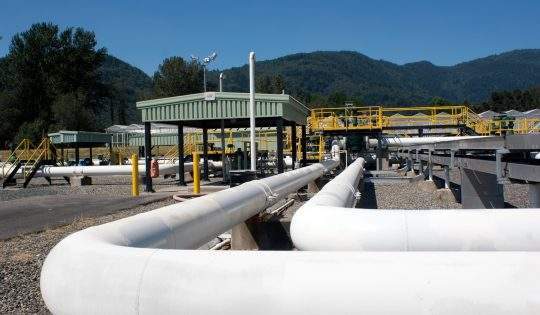
Under the terms of the agreement, the government will fund the resumption of TMEP planning and construction work. This will be done by guaranteeing advances for TMEP under a separate Federal Government recourse credit facility until the completion of the deal.
Kinder Morgan has also agreed to work with the government to seek a third party buyer for the Trans Mountain Pipeline system and TMEP through 22 July 2018.
KML chairman and CEO Steve Kean said: “The outcome reached represents the best opportunity to complete TMEP and thereby realize the great economic benefits promised by that project.
“For Kinder Morgan (KMI), despite losing the EBITDA associated with the Trans Mountain system, we still expect to meet or exceed our 2018 distributable cash flow (DCF) per share target.
“The transaction will also have a positive impact on our consolidated balance sheet, as we expect KMI’s approximately 70% share of after tax proceeds to be approximately $2bn.”
Canada Finance Minister Bill Morneau said that the agreement will ensure timely completion of the Trans Mountain Expansion Project.
Morneau said: “Our government believes that the commercial agreement we have reached with Kinder Morgan is the best way to protect thousands of good, well-paying jobs while delivering a solid return on investment for Canadians. This is an investment in Canada’s future.”
The transaction is planned to be completed in late in the third quarter or early in the fourth quarter of 2018. It is subject to KML shareholder and applicable regulatory approvals.
Trans Mountain pipeline system, which was commissioned in 1953, is claimed to be the only West Coast link for Western Canadian oil.
The $7.4n Trans Mountain Expansion Project runs parallel to the 1,150km route of the existing Trans Mountain Pipeline. It is expected to increase the pipeline capacity from 300,000 to 890,000 barrels of oil per day.






